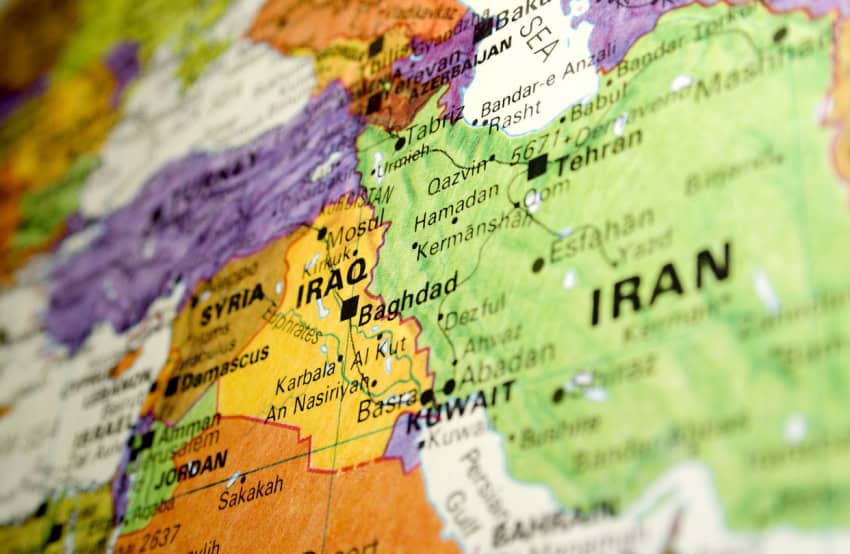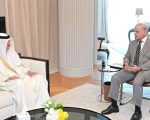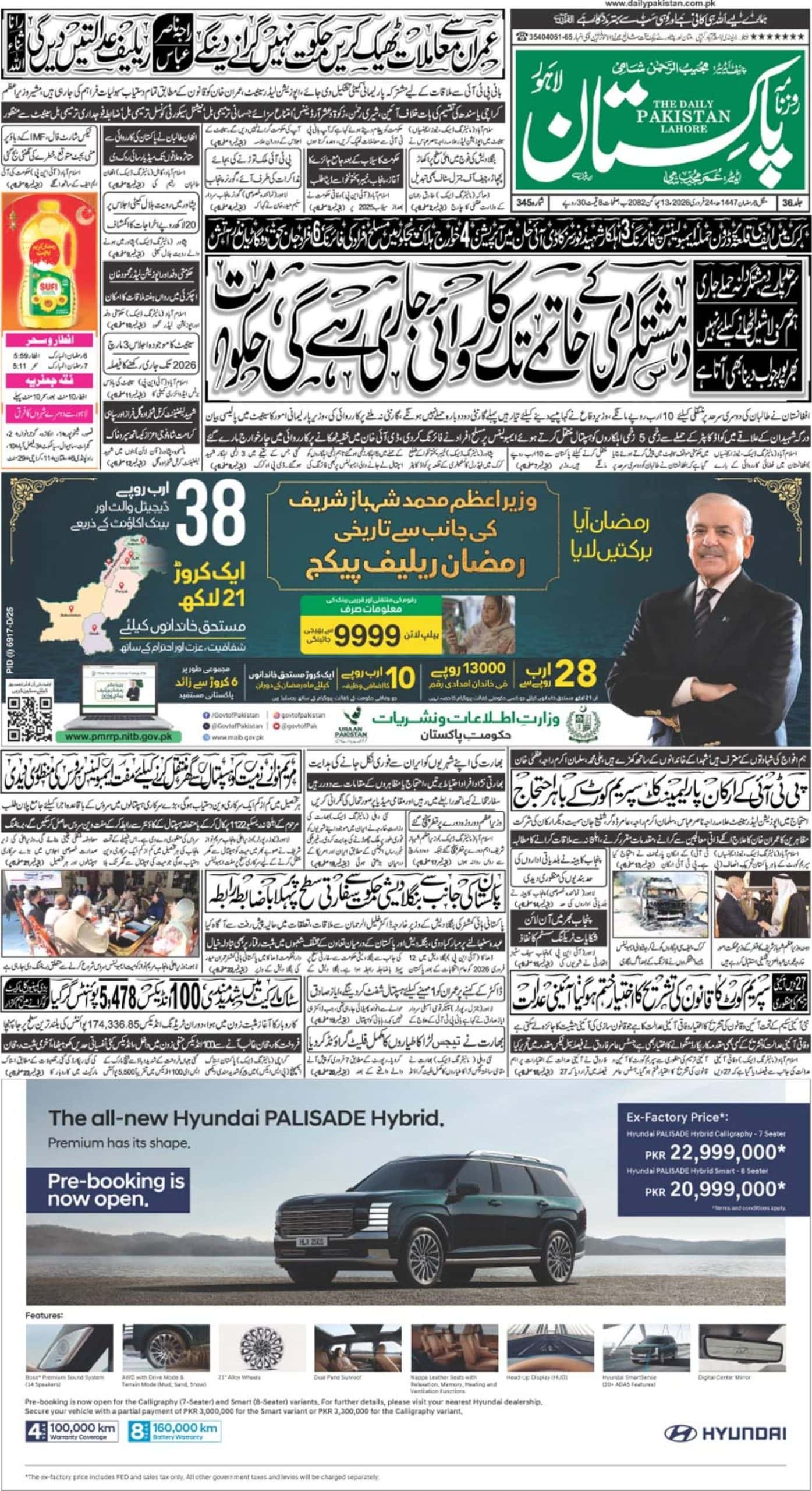Saudi Arabia and Iraq are set to open a border crossing for the trade after 27 years of closure. Besides, the two countries recently decided to set up a joint trade commission. Officials on both sides bill the steps as tips of the iceberg. It pretty much looks like the beginning of the end of Iraq’s isolation from the Arab world.
Meanwhile, influential Iraqi Shiite cleric and politician sharply critical of the government Muqtada al-Sadr surprised the world with his visit to Saudi Arabia. Besides others, he called on Crown Prince Mohammad bin Salman. A fortnight later, he landed in Dubai and met United Arab Emirate’s crown prince too. Iraq is obviously being wooed back in the Arab fold. The ties were severed after Saddam-led Iraq invaded neighbouring Kuwait in 1990.

The Gulf states, particularly Saudi Arabia, seem to proceed with a coherent policy and well-crafted strategy of engaging and reintegrating Iraq more than the position before Saddam’s invasion of Kuwait. Much has changed since, from leadership style and ideology to society and economy. The tectonic shift in the approach to Iraq originates from compulsions of geopolitics and geostrategy. The Saudi and Emiraiti approach to Iraq goes beyond the executive authority in Baghdad. The two countries are reaching out to all possible avenues in the quest for ‘broad-based’ engagement. For that matter, Iraqi Shiites remain on a higher priority. Thus, Muqtada’s high profile tour!
The man in the limelight is no stranger to headlines. Time listed him amongst the 100 most influential people in 2008. He rarely shows up in public yet has hundreds of thousands of followers.
The ascent of an enigmatic leader
Muqtada al-Sadr hails from Iranian ancestry and his father Ayatollah Mohammed Sadiq Sadr, a prominent Shia cleric, was allegedly murdered by Saddam’s intelligence operatives in 1999 “due to his outspokenness.” The 23-year-old went into hiding for four years before appearing in his hometown of Najaf as the US troops overran the Iraqi territory. His marriage to the daughter of Lebanese origin Grand Ayatollah Muhammad Baqir al-Sadr helped boost his credentials as a Shiite leader as well as a politician.
Muqtada’s core support base rests largely amongst the urban Shia poor, predominantly in Baghdad’s Sadr city (earlier called Saddam city). In February, he used his power base to shake things up for Iraqi Prime Minister Haider al-Abadi seeking the promised reforms as well as anti-corruption measure pledged after agitation in 2015.

Saudi invitation for Muqtada following inroads with the Abadi government indicates that the middle-aged populist is seen as the main opposition force in the country, which has repeatedly challenged Iran-backed rulers in Baghdad.
Muqtada’s political evolution has not been so smooth. Since his emergence in 2003, he has taken a different route to capitalize on his father’s legacy and enhance his personal clout. He posed a serious challenge to invading American and British forces. Shrewdly, he portrayed his struggle as a natural nationalistic reaction to foreign annexation instead of basing it explicitly on sectarian grounds. Washington mulled over eliminating him but shied away from it for the fear of severe backlash.
Despite his repeated and often convincing bids at leading an Iraqi nationalist movement, the Sunnis, as well as observers, have not forgotten the sectarian massacres his Jaish al-Mahdi or Mahdi army had committed till 2008. Besides, he is alleged to have target killed political rivals as well.
After the withdrawal of US troops, Sadr renamed his mercenaries the Peace Companies or Sarāyā al-Salām, causing a split into numerous Shiite militias. Some even became rivals, eventually overshadowing his Sarāyā. Sadr unsuccessfully wrestled to tame the breakaway militia but resorted to agitational politics.
Muqtada has followed Grand Ayatollah Ali Sistani’s approach by design and sometimes by default. The campaign against incompetence and corruption in the era of the previous premier, Nuri al-Maliki, was a follow-up of Sistani’s. Both try to stay out of public sight while enhancing their appeal and outreach through other means. Both have deliberately attempted to not look like Iran’s pawns.
Sadr and Sistani relationship dates back to 2004 when the grand ayatollah mediated between him and the US forces. In today’s Iraq, Sistani wields colossal spiritual influence amongst Shiites while the 44-year old has enhanced his appeal in Arab and Kurd Sunnis populace, albeit with limited gains.

Much to Iran’s chagrin where he went for higher education, Muqtada remains the only Shiite Iraqi leader to have repeatedly called upon embattled Syrian dictator to resign. Despite massacres of Sunnis on his watch, the worst critics and rivalry al-Sadr faces comes from fellow Shiites. His aspiration to ascend beyond Shiite-Sunni binary and severe intra-sect political power struggles makes him worthy of global attention.
Al-Sadr’s leadership model is politico-religious than merely clerical. He leads a party with a strong media arm and an assortment of social welfare organizations. He is no democrat but leads a cult. If assassinated by rivals, Muqtada will leave behind quite a few splinter groups led by various successors.
Interestingly, Muqtada al-Sadr has many parallels with Afghanistan’s Gulbuddin Hekmatyar, ranging from their militant past to present political ambitions, and independent approach towards the neighbouring countries and efforts to invoke nationalism to shun sectarianism and ethnic fissures. Yet, Afghanistan and Iraq have their respective unique history and dynamics.
The Gulf-Iran power struggle
The Gulf region’s over-arching stratagem aims to reduce Iranian interference in Iraq while enhancing its economic and social integration with the bloc. Their walkover to Iran lasting more than two decades is effective. The likely Baghdad visit of Saudi Crown Prince Mohammad bin Salman will clear up the horizon to a good extent.
From Iraq’s perspective, the Saudi and Emirati rapprochement is much needed for much-delayed reconstruction of infrastructure and society. The country has been central to the evolution of Islamic political thought, jurisprudence and military might.
While woes of the Abadi government remain endless, Muqtada al-Sadr’s Arab patronage may boost his profile amongst the Arab Sunnis ahead of 2018 parliamentary vote. The election will also be a litmus test for nationalist aspirations of the people, which have been subjected to a rude awakening by the ISIS. If Muqtada hammers out right politically alliances beyond sectarian divide, Baghdad may welcome a more inclusive Parliament.
The mercurial politician of Iraq is severely constrained by his prime constituency, which happens to be Shiite. Iran continues to hold sway on the public opinion. If his career trajectory can be any guide, Muqtada is a realist politician whose aims to maximize his power and last for longer times. His engagements with Iran’s rivals over the past few weeks can convince Tehran for a tough compromise: woo al-Sadr in by offering greater power share. The IRGC proxies may also be softening their public positions to enter a coalition with the ambitious leader. Saudi Arabia and UAE can offer Iraq funds for reconstruction, legitimacy to Muqtada in the Sunni Arab world and promise to respect the country’s territorial integrity in the wake of the referendum in the autonomous Kurdish region.
If Saudi Arabia and other Gulf states continue to rebuild bridges, Iraq will be confronted with the delicate task of striking a balance between two powerful neighbours. Neither will accept its neutrality even if ambitious types like Muqtada attempt. Meanwhile, the US clout has indirectly facilitated a greater Iranian role in the country than otherwise. Thus, overall political and internal security of Iraq is conditioned with relations between Saudi Arabia and Iran.














